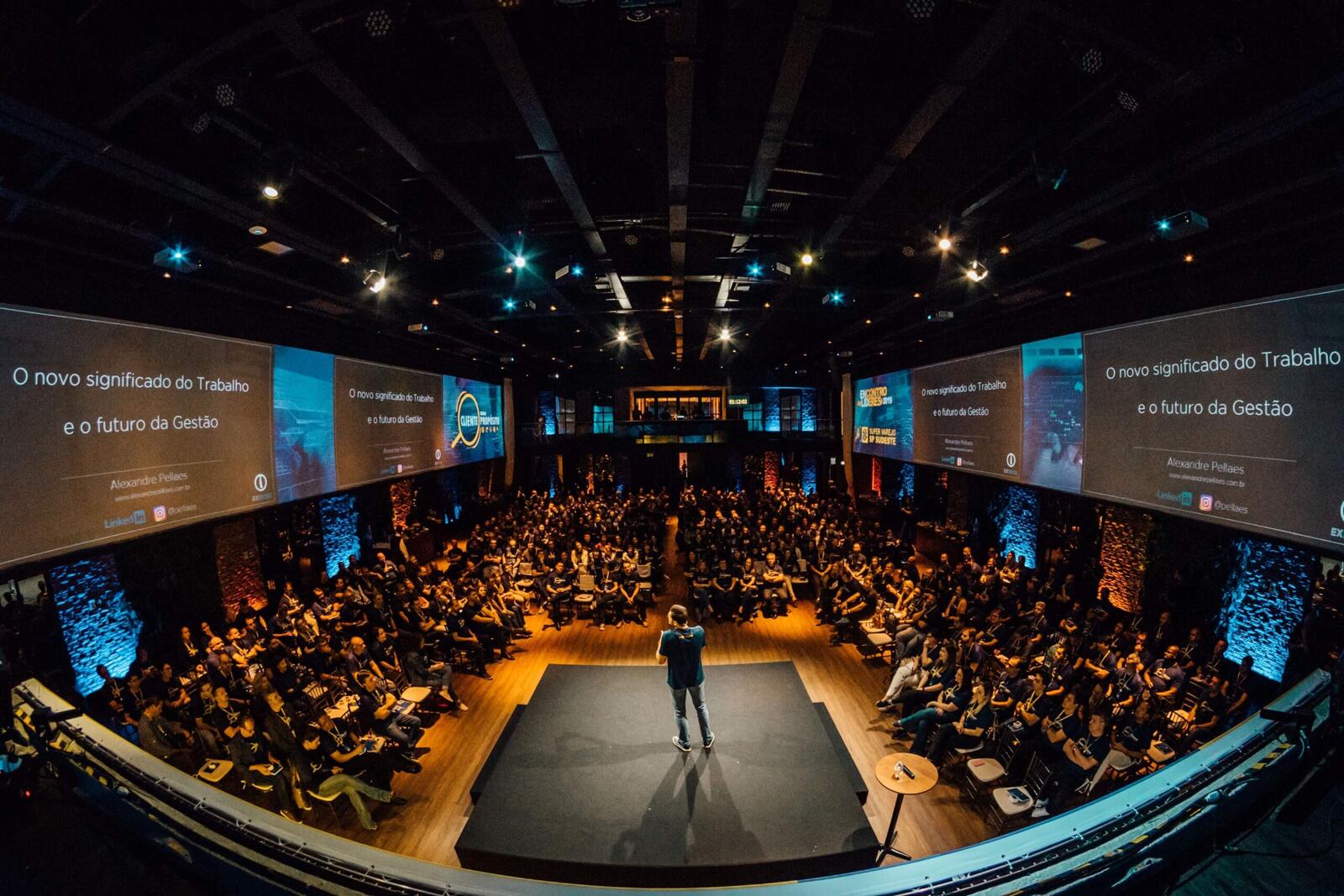Virtual and hybrid events harness technology to bring together extensive audiences, surpassing geographical constraints. Despite this commonality, these event categories possess unique features. Virtual events transpire entirely in the digital sphere, frequently utilising sophisticated platforms, while hybrid events blend physical, in-person gatherings with the digital domain.
Continue reading to explore the reasons behind choosing either a hybrid or virtual event, delving into the advantages and drawbacks of each.
What is a Hybrid Event?
Positioned between in-person and virtual events on a spectrum, hybrid events meld physical gatherings at a venue with online participation. Striving for parity in live and virtual experiences, hybrid events aim to engage all attendees positively. A well-chosen virtual event platform facilitates simultaneous interaction between the in-person and virtual audiences, creating a seamless event experience.
Hybrid Event Examples
Hybrid Events are all around us and you may have been part of one without realising. Here we have listed three of the most popular hybrid events that exist – from Apple hosted events to London’s own Mad//Fest.
1. Apple Special Events
Predictably, Apple has taken a leading role in pioneering hybrid events and has showcased some of the finest examples by streaming live in-person product demonstrations to a vast online audience.
During the pandemic, Apple’s special events transitioned entirely to a virtual or pre-recorded format. This strategic shift enabled Apple to connect with audiences worldwide, featuring dynamic speakers delivering concise speeches from distinctive locations.
Apple’s latest event, held in October 2023, unveiled a new lineup of M3 chips and the accompanying Mac models designed to harness their capabilities.
2. MAD//Fest
Taking place over three days in a vast Shoreditch car park, MAD//Fest transforms into an open-air summer playground, attracting over 10,000 marketers. This event caters to those shaping the future of marketing, advertising, and technology, providing a platform to connect with major brands and innovative startups. In essence, MAD//Fest serves as the global meeting point for marketers to exchange ideas and network with industry counterparts.
At its 2023 conference in London, on-site participants enjoyed delectable food amid a blend of physical and virtual sessions, broadcast live to a remote audience.
3. Social Media Marketing World
Social Media Marketing World is a premier event for leading social influencers globally. Annually, participants convene in San Diego to explore the latest trends and optimal strategies for social media promotion. While predominantly in-person, the event takes an additional step by seamlessly integrating a virtual component into its framework.
More from Guides
- 10 Ways AI Is Changing What Talent Looks Like in Commodity Markets
- Best Alternatives To WhatsApp
- What Is the Difference Between Equity and Debt Financing for Startups?
- Startups in 2025: Why Digital-Readiness Matters from Day One
- How to Use AI to Automate Your Startup’s HR
- How to Use AI to Help You Write a Business Plan
- Internet Sharing and Network Privacy: Should You Use a Proxy Server?
- 10 Tips to Go Viral in the Pet Industry
Why Should Your Business Host a Hybrid Event?
Hybrid events are adaptable for diverse meetings and programs, whether they are internal or external. Their enduring impact surpasses that of other meeting formats, as virtual content remains accessible for an extended period, allowing continuous viewing and engagement.
What Are Virtual Events?
Conducted entirely in the digital realm, virtual events utilise live streaming and pre-recorded content to captivate online participants. To put on a successful virtual event, you will likely need to employ the services of virtual event experts who will be able to assist with everything from planning to putting on the event itself. Examples encompass online meetings, webinars, webcasts, and web conferences. Virtual event platforms enable features like networking, Q&A submissions, and real-time feedback, fostering interaction among virtual attendees.
Examples of Virtual Events
There are no shortages of virtual events entering the digital world. From the 2020 Tomorrowland Around the World to the 2023 Adobe Summit. There are limitless types of virtual events, but here we have listed our top three.
1. Adobe Summit
The Adobe Summit stands out as one of Adobe Inc.’s major annual events. Explore the most recent industry trends, innovations from Adobe, thought leadership content from both Adobe leaders and industry experts. This event provides an opportunity to learn, network, and stay abreast of the latest trends and technologies in the digital realm.
Whether mingling with influencers, technology service providers, competitors, or beyond, you’ll engage with the sharpest minds in the business, gaining unparalleled insights into the latest trends and strategies propelling the digital world forward.
2. Tomorrowland Around the World (2020)
Even with renowned figures like David Guetta and Steve Aoki, envisioning a successful online version of a music festival seems challenging. However, Belgian techno music festival Tomorrowland achieved this feat, making history by attracting over 1 million participants worldwide.
The outcome was a remarkable and immersive two-day festival featuring eight virtual stages, 60 artists, workshops, games, fireworks, laser shows, and additional attractions. Naturally, festival attendees could communicate and interact with each other. To craft an unparalleled music experience, the organisers collaborated with top-tier partners in the film and gaming industry.
3. Virtual Estate Experiences
With the global embrace of technological strides in Virtual Reality and Augmented Reality, it’s no wonder that Estate Agencies have adopted the practice of organising virtual events. These gatherings enable the presentation of properties to interested parties from distant locations, fostering increased accessibility and inclusivity.
Why Should Your Business Host a Virtual Event?
Executing a virtual event demands equal diligence and focus as an in-person counterpart. In both scenarios, formulating an event strategy is crucial for successful event promotion, attendee engagement, the creation of memorable moments, and demonstrating overall event success.
For instance, a webinar thrives in a virtual format, designed to reach a broad audience and deliver thought leadership, training, or other content. On the other hand, a user conference or regional training program is tailored for purposeful 1:1 in-person interactions, where face-to-face delivery adds significant value.



